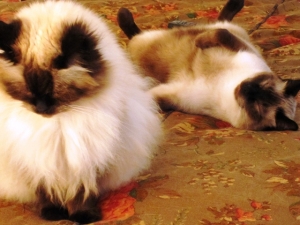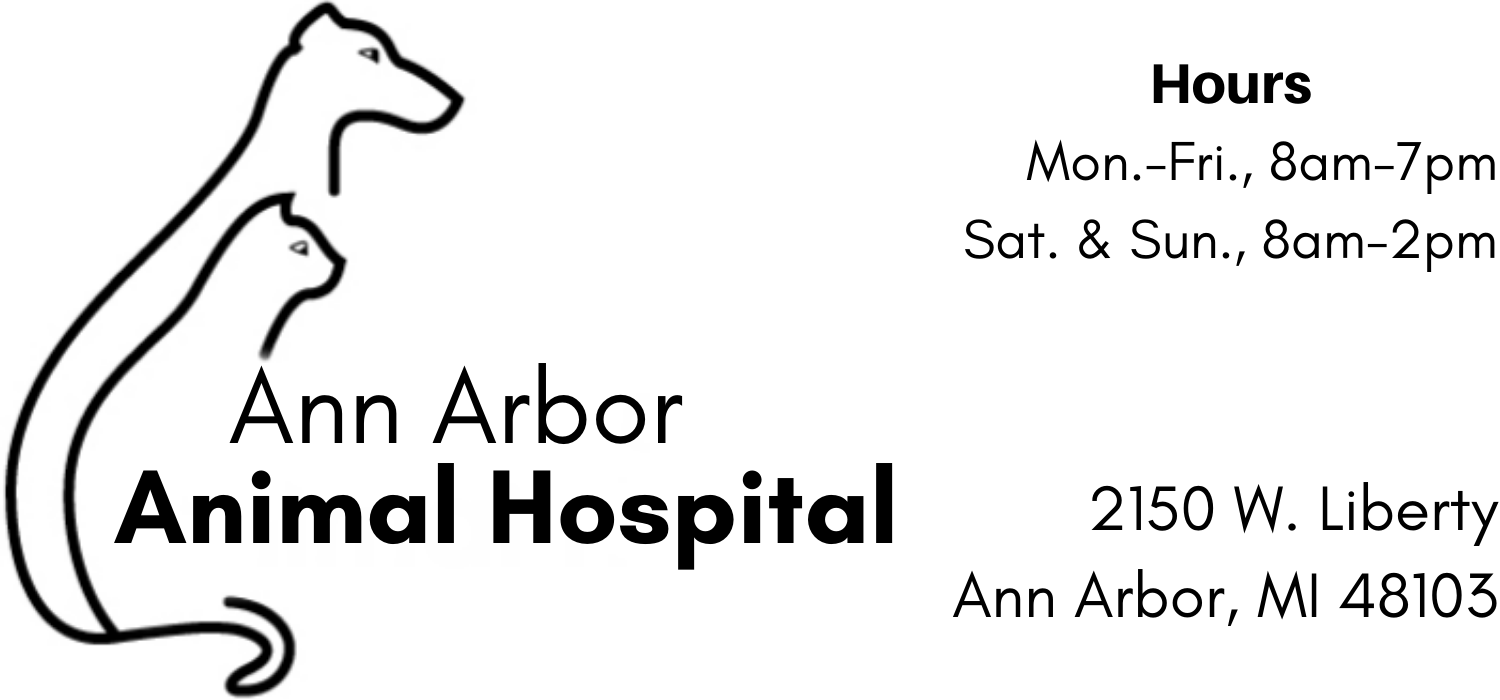by Jess Franklin, DVM
Starting around the beginning of March, 2015, cases of sick cats with vomiting and loss of appetite started being seen in Ann Arbor.
Some of the cats were linked by boarding over winter break. Some of the cats came into Ann Arbor Cat Clinic, or Ann Arbor Animal Hospital and then either that cat or a housemate cat in contact with it became sick. One pet sitter recognized multiple cats on her house sitting route showing similar symptoms. In some cases the cat is a totally indoor cat with no documented contact with outside cats or people.
Dr. Linda Griebe, who owns Ann Arbor Animal Hospital and practices medicine at Ann Arbor Cat Clinic, remembers a similar outbreak when AACC was in their old building, approximately 15 years ago.
What do the sick cats look like?
The sick cats vomit and stop eating. Some cats have diarrhea. It is rare to recognize a fever. Unlike the much more common contagious respiratory infections we treat in cats, these cats do not sneeze, have eye or nasal  drainage or persistent fevers. They do not have the low white blood count typical for panleukopenia. In general, the vomiting is controllable with medication like cerenia, but the return to eating takes longer, often a week for each cat. Some of the patients need fluid replacement, appetite stimulants and general support to recover. So far no cats have died; recovery appears to be complete once the cat returns to eating.
drainage or persistent fevers. They do not have the low white blood count typical for panleukopenia. In general, the vomiting is controllable with medication like cerenia, but the return to eating takes longer, often a week for each cat. Some of the patients need fluid replacement, appetite stimulants and general support to recover. So far no cats have died; recovery appears to be complete once the cat returns to eating.
Ann Arbor Animal Hospital saw cats with signs like this in three families in mid-March. We are asking veterinary hospitals to be alert for sick cats. Consider a vomiting and not eating cat potentially contagious. Cats brought to the hospital should stay in a carrier until examination. We have stepped up isolation and disinfectant protocols at our hospital.
Contagious disease is common in veterinary medicine. We treat contagious canine cough every week, even with adequate vaccines for bordetella. Shelters and catteries battle with chronic respiratory infections in cats. Parvovirus causes serious life-threatening disease in young and improperly vaccinated dogs. We have contacted DCPAH, the diagnostic lab at Michigan State University, to be ready to try to identify a possible organism.
What should a cat owner do?
In Toronto during the SARS outbreak, people were directed to stay home. Try to do the same for your cat– keep it at home. Try to avoid exposure of your a cat to other cats; this means not helping at adoption fairs, volunteering at the shelter, or boarding. If a cat needs to be watched during a planned vacation it would be best for a non-cat-owning friend to oversee the cat’s care in the cat’s own home.
Please contact our hospital if you are aware of other cases.


Why is this happening? How can we fix this?
Hi Shannon,
At this point we are aware of sick cats but don’t yet have a diagnosis of cause. Infectious diseases are all around us. There are known viruses that we do not have effective vaccines to control, and there are probably many others that we do not know about. For example, there are Many viruses in the Feline Corona virus group. Humans also have many viruses that cause diarrhea and upper respiratory infections. The last time we were aware of a contagious vomit syndrome in cats in Ann Arbor was approximately 15 years ago! In my experience when we test samples for evidence of viruses many, if not most that I submit come back positive for corona virus. So far there are no results from the virus testing done at MSU. At this point, we are treating by isolation, preventing new exposures, and using supportive measures for the sick animals. Dr. Jess Franklin